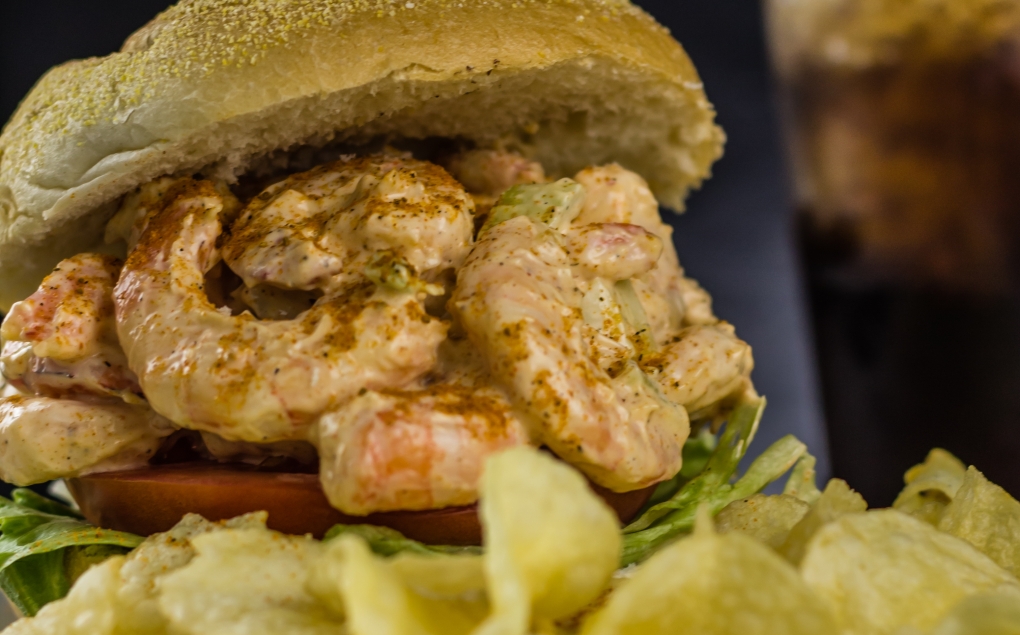Identity Reference Words for Court Appearances
In his moving preface of Success to Praisesong: 1957-1989, Essay and Lectures, Richard K is summarized by Dolan beautifully. Barksdale’s vocation in literary grant and coaching: “With unchanged grace, he imparted information” (ix). This amount testifies to the wide-ranging, and offers a real record of the achievements of Barksdale passions and vision of student, the known tutor, and manager. As the key emphasis of Barksdale’s collection is on African American fictional kind, technique, and record, essays and lectures are included which investigate resources of Victorian attitudes toward competition, thematic paradox in The Journeys of Huckleberry Finn, and Barksdale’s distinct and fascinating encounters in press here for information pre- and article-World War two graduate schools. This quantity can compensate individuals and historians of American literature and National culture and record with its own perceptive research of problems which remain crucial to the career, its clear and eloquent writing, and its array of scope. The book is divided into guiding themes, or six components, each distinctive in a unique right and yet integrally connected to people who precede and follow. Hence layout, beyond giving nice classes for your wideranging matters of the volume, recommends a literary tradition that continues to develop at the same time as it sustains a romantic debate with sounds that are early outside and within of its famous concentration. The first portion, ” Blackness and Fictional Canons,” begins with a dialogue of Arnoldis attitude toward contest, and focuses specially to this attitude’s contracdictory signals.
The homework must remain the kid???s minus the parent taking it around.
Around the one-hand, Arnold based his opinion around the Aristotelian concept of competition in the misconception of untouched racial superiority, and additional argued a belief while in the equality of most races was a fundamental tenet of Christianity. Around the other hand, Barksdale convincingly implies that Arnold thought in a ” range ” between dark and white individuals, a which spread the trunk -to- motion within the nineteenth-century. This notion of the “organic diversity” is skillfully problematized in “Background, Paradox, and Captivity in Finn,” where Barksdale examines recent strikes by white and dark force groups on the renowned book of Twain. Both teams, according to Barksdale, seek to exclude the novel to be able to repress negative memories of slave moments – “thoughts of the mayhem wrought by incestuous concubinage and also the delivery of half-white half-friends and half-black white half-sisters, thoughts of the dehumanizing program that reduced developed black-men and girls to boys’ and gals’ and expanded bright women and men to groveling hypocrites” (27). Barksdale contends, however, that these communities neglect a simple review of the notion, Twainis fictional goal that ” diversities that are normal ” occur involving the events:”…
Contributing to their complications, is the fact that the entire world is now very competitive.
Twain’s ironic conclusion is the fact that two people, however different inside their skills and previous ailment of servitude,’ may, if far enough taken from the corrupting influences of sivilisation,’ become friends” (29). As the idea of the “pure range” between the contests is subjected being a misconception in these beginning essays, Barksdale curiously implies the plausibility of this type of opinion – because it pertains to literary fund – in “Critical Theory and Dilemmas of Canonicity in African American Literature.” Functioning in the assumption that “African American literature cannot effectively endure vital techniques that strain authorial depersonalization as well as the essential unimportance of racial background, racial area, and racial customs,” Barksdale proposes that, “even as we develop our brother, we dismiss deconstruction, poststructural textual exegesis, and continental hermeneutics” (37). Though Barksdale’s focus on a “politics of success” regarding Africanamerican literary criticism has truth that is much, to dismiss principle that is modern summarily looks rash. Performs for example A. Baker, Jr.is Modernism along with the Harlem Renaissance and Henry Louis Jr The Signifying Monkey, which well integrate contemporary literary concept and conventional literary fund, seem to enhance and advance, in place of rip the African history. Having created his situation on contemporary literary theory clear in the last article, Barksdale converts, inpart two, to some broad talk of “The Humanities Beyond Literary Canons.” The primary dissertation, ” Humanistic Demonstration in Current Black Poetry,” views these poets of the 1960s who, despite improving social and financial issues within metropolitan neighborhoods that are black, published using a tone that is substantially humanistic. Focusing specifically around the composition of Don L and Sanchez.
Whilst the machines repeat the keyboard down and up you will learn each notice.
Barksdale considers the paradox of humanistic messages inside the wake of the frustrating assassinations of the 1960s. Tracing a history of protest starting from Olaudah Equiano’s Narrative to the writers of the Black Arts Activity, Barksdale ends that “each black poet has attempted, through his or her own particular pattern of protest, expressing a dark humanism that could talk with the inhumanity of his instances” (47). The possibility that this humanism could be affected and perhaps buy cheap essay uk obliterated, under philosophical, financial, and significant cultural challenges is investigated in ” the New Humanism and also Ethical Invisibility ” and “The Humanities: The Attention of the Needle inside the Black Encounter.” The previous thinks what Barksdale identifies as “a brand new notice of futility and philosophic despair” in Africanamerican fiction of the 1950s, and suggests that works such as Kafka’s The Trial and Camus’ The Stranger had a profound affect on Rich Wright and Ralph Ellison. Barksdale proposes that “the information of these authors is apparently that having a familiar id in [a chaotically absurd earth] is in and of itself ludicrous, and having or assuming meaningful obligation is just a huge non sequitur” (50). The answer to restoring an “moral awareness,” accordingto Barksdale, lies in a brand new humanism that will revitalize both folks and their organizations: “Our schools may generate the men and women of spiritual perception and ethical probity who’ll enable the individual serve the earth and help the earth serve the individual” (53). Only when this happens, Barksdale appears to feel, will the philosophical despair that marked way is given by works such as Wright Ellison’s and is The Outsider Invisible Man to an ethical presence. Moving to social exposure from issues of ethics and strength partly three, “Fictional Forms of Traditional Success,” Barksdale considers Africanamerican literary history from two extensive appeal points: metaphor. The previous is very brilliantly investigated in “White Triangles ” an article that attempts to reconcile, inside a fictional convention, the institution of slavery’s very disparate pictures along with the human beings who sustained under that establishment. Triangularity, in accordance with Barksdale, “connotes inequality, a killing drive and power, along with a time resistant endurability” (74).
In developing a for discovering and understanding, thus, homework helps.
The metaphor of the pie, in this perception, is evident in works including Elizabeth Keckleyis Behindthescenes, or Thirty Years a Slave and Four in the Whitehouse to Langston Hughes’s explorations of miscegenation in songs including “Mix” and “Mulatto.” The metaphor of the group is ” harmony and all proportion. It implies a newbie and a return – a voyage ant doesn’t depart one among guests but a that returns one to the warmth and love of his / her homeland” (77). Barksdale traces this metaphor, with its consequent habits of phone-and-answer, for the servant tunes, which he describes as “a music that circled back to Africa – an audio of polyrhythmic strength – an audio that produced people dance – a music that has been a cathartic for that discomfort and agony of slavery” (78). Another approach to dealing with the dehumanizing association of captivity was the utilization of witty ridicule, which “presented the psychic stabilization of the superior defensive strategy and the psychological raise of a great questionable approach” (87). Barksdale well situates the autobiographies of Langston Hughes, Zora Neale Hurston, and Nate Shaw (compiled by Theodore Rosengarten) in this convention, and argues that through amusing distancing these authors “go above bigotry’s dull and inappropriate realities and provide a note that lightens the mood of the audience and pulls the tone of the story” (97). For pleasing likely visitors, more than autos, however, irony and amusing distancing play with essential roles in Barksdale’s paradigm of a “politics of survival.” Authors such as Hughes, he proposes, uses these practices” in order to avoid personalized and sometimes mentally deteriorating responsibilities and touch upon the ever changing cultural and political activities [of the 1930o and 19409) with a few objectivity… From your activities themselves” (112).

Lord is not indeed unwise that buddies were never produced by him with price-tags.
In parts four Barksdale adjusts his target to examinations of specific authors from fictional heritage and strategy, beginning with essays on Phillis Wheatley, Margaret Danner and Toni Morrison. In these documents the eloquent prose of Barksdale competitors the poems’ words he explicates, ASIS noticeable, among other places, in this passing from ” the African Connection as well as Danner “: Somehow The Down of a Thistle, the query thus elegantly phrased by Margaret Esse Danner within the lovely model of her poems, is laced with the conflict of empire along with record. It’s really a problem that smells of the stench of slave ships wallowing in the passageway that is middle and servant barracoons. It’s really a query that echoes across oceans and areas, bounding and ricocheting the surfaces of the bloodstream off -spattered decades. It’s a problem that provokes recollections of dark youngsters damaged from the tortured grasp of black parents. (128) This intimacy with his topic is also evident in Barksdaleis documents on Langston Hughes, a few of that have become specifications in Hughes studies. Barksdale examines Hughesis talents’ enjoyable selection partly five, and provides usually outstanding readings of the author’s blues- and spruce-influenced verses of the Harlem Renaissance, his revolutionary documents of the 1930s, and the Broadway generation of Mulatto.
Publish on workout and gym routines.
One detects throughout these parts Barksdaleis sincere admiration for the poet as well as the male, visible in his discussion against early pundits who thought that Hughes somehow failed “to estimate in functionality or attitude or part what [was] considered to be correct for that poet in Western culture”: His was no load” pro, pitted against a hostile earth that is massively, he didn’t burn enough with disenchantment. He wasn’t a ferociously maladjusted person. Nor was he isolate that is philosophic or a heroic loner. Truly, Hughes was a cosmopolite – a man who had more friends than enemies and seemingly produced his convivial strategy to method areas and all shores. (195) Praisesong of Emergency appears and to reveal a guy who, against the grain of functionality or function or mindset considered suitable for that literary critic in American community, goes by some criteria. Barksdale ignored the tendency in higher-education to be pigeonholed into evermore narrow specializations. His tenacity triggered a known profession as being a student of Victorian, National American literature, and developed a wise commentator on problems of canonicity, competition, and the humanities, in addition to a ready administrator in companies of higher understanding. This quantity is definitely an appropriate praisesong.









